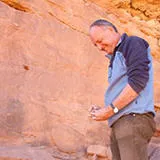
Professor Nick Drake
Professor of Physical Geography
Research interests
- Environment
- Geography
Biography
Professor Nick Drake obtained his BSc (Honours) in Environmental Science at Plymouth Polytechnic in 1983 and his Master of Applied Science in Geochemical Exploration from the University of New South Wales in 1986.
From 1986 to 1992, he worked as a research fellow conducting remote sensing research at the Department of Geography, Reading University. He worked on the development of improved algorithms for image classification and the characterisation of desert surfaces for geomorphological mapping using remote sensing. During this time he completed a part-time PhD entitled ‘Mapping and monitoring of surface cover types and processes in southern Tunisia using remote sensing’.
Nick joined King's Department of Geography in 1992, was made Reader in 2000 and a Professor in 2013. He has continued to develop his interests in theoretical and practical aspects of remote sensing while broadening his interests into geographical information systems and spatial modelling.
He is a member of the editorial board of the Journal of Arid Environments, Origini (Journal of Prehistory and Protohistory of Ancient Civilizations) and the Journal of Geology and Geosciences.
Research
- Remote sensing, geomorphological analysis and geochemical analysis of landforms and processes of landform change in semi-arid and arid environments
- The palaeoclimate and geoarchaeology of semi-arid and arid regions
- The role of the Sahara-Arabian deserts in human evolution and ‘out of Africa’ dispersals.
- Soil erosion models and mixture models applied to remotely-sensed imagery.
During the last few years, Nick's interests have focussed on applying his expertise to arid lands and, in particular, the Sahara Desert. He is the leader of the Sahara Megalakes Project, an international project that involves nine universities and coordinates research on giant ancient lakes in Chad, Libya and Tunisia.
Teaching
Undergraduate
- 5SSG2043 Environmental Remote Sensing
- 5SSG2053 Principles of Geographical Enquiry II
- 5SSG2049 Methods in Physical Geography
- 5SSG2046 Fieldwork in Physical Geography
- 6SSG3025 Desert Environments
- 6SSG3070 Global Environmental Change I: Past and Present
Postgraduate
- 7SSG5176 Global Environmental Change I: Past and Present
PhD supervision
Principal supervisor
- P. Breeze, 'GIS analysis of the effectiveness of human and animal dispersal routes out of Africa' (NERC) (2011- )
Second supervisor
- N. Yan, 'Dune landscape transformations driven by vegetation changes in inland deserts, northern China.' (Centre for Doctoral Studies studentship) (2010- )
Further details
Research
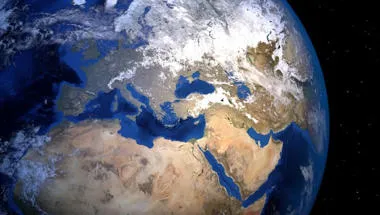
Physical Geography and Environmental Science research group
Enhancing understanding of processes, drivers and impacts in water, land, atmosphere and ecosystems to address environmental and societal challenges.

King's Climate Research Hub
Studying climate change through the relationship between science, policy and culture.
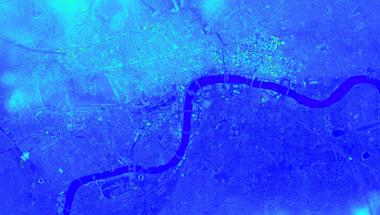
Earth Observation and Environmental Sensing Hub
The Earth Observation and Environmental Sensing (EOES) Hub is an interdisciplinary research group at the Department of Geography, King’s College London.
News
New research reveals how repeated climate change allowed early humans to move into the Arabian Peninsula
Satellite mapping analyses have located ancient lake deposits with archaeology, which show how dramatic climate change repeatedly allowed past humans,...
Dramatic climate change allowed humans and elephants to walk together into the deserts of Arabia 120,000 years ago, new research reveals
The earliest evidence yet for human and animal movement into Saudi Arabia’s Nefud Desert – fossilized footprints imprinted in the muds of an ancient lakebed –...
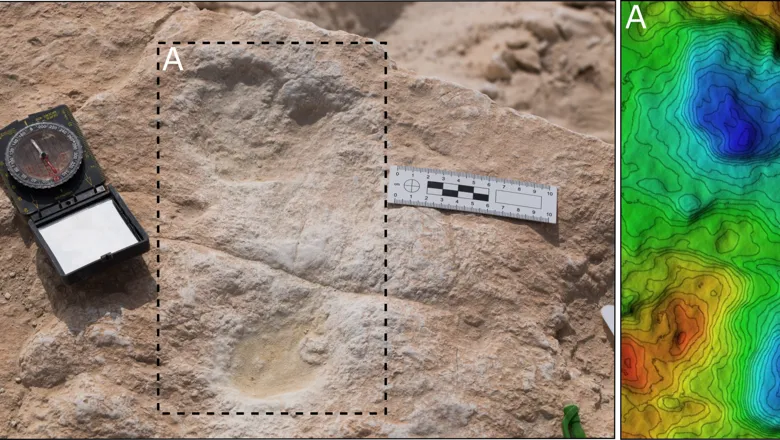
Fossil Finger Points to Earlier Human Migration
An international team, including Professor Nick Drake and Dr Paul Breeze, has discovered the first fossil evidence of early humans, Homo sapiens, on the...
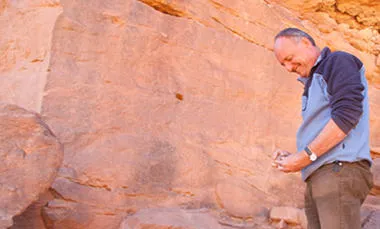
Research

Physical Geography and Environmental Science research group
Enhancing understanding of processes, drivers and impacts in water, land, atmosphere and ecosystems to address environmental and societal challenges.

King's Climate Research Hub
Studying climate change through the relationship between science, policy and culture.

Earth Observation and Environmental Sensing Hub
The Earth Observation and Environmental Sensing (EOES) Hub is an interdisciplinary research group at the Department of Geography, King’s College London.
News
New research reveals how repeated climate change allowed early humans to move into the Arabian Peninsula
Satellite mapping analyses have located ancient lake deposits with archaeology, which show how dramatic climate change repeatedly allowed past humans,...
Dramatic climate change allowed humans and elephants to walk together into the deserts of Arabia 120,000 years ago, new research reveals
The earliest evidence yet for human and animal movement into Saudi Arabia’s Nefud Desert – fossilized footprints imprinted in the muds of an ancient lakebed –...

Fossil Finger Points to Earlier Human Migration
An international team, including Professor Nick Drake and Dr Paul Breeze, has discovered the first fossil evidence of early humans, Homo sapiens, on the...

